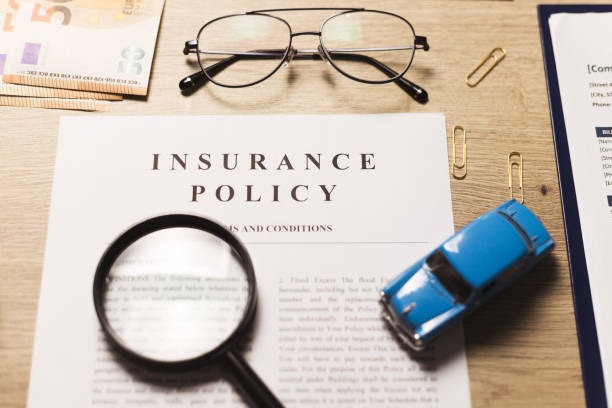When it comes to being a responsible driver, having the right insurance policy is not just a legal requirement in most states, it’s also a financial safety net. Car accidents or unforeseen incidents can come with hefty medical bills, vehicle repair costs, or even legal fees. Understanding your options ensures that you’re not caught off guard, helping you stay protected on and off the road.
Here’s a closer look at the types of car insurance policies available for drivers, what they cover, and why they matter.
1. Liability Insurance
Liability insurance is the foundation of most auto insurance policies and a legal requirement in nearly all states. It covers damages you cause to another person or their property in an accident where you’re at fault.
- Bodily Injury Liability (BIL): Covers medical costs, lost wages, and legal fees for injuries you cause to others.
- Property Damage Liability (PDL): Covers the repair or replacement costs for someone else’s property, like their car or fence.
For example, in a collision where the other driver sustains injuries and their car is totaled, liability insurance will cover these expenses up to the policy limits. Investing in adequate coverage is especially crucial to avoid out-of-pocket costs in high-stakes settlements.
2. Collision Insurance
Collision insurance ensures your own vehicle is repaired or replaced after a crash, regardless of who was at fault. This is an optional add-on in many states, but it’s essential if you drive a newer or expensive vehicle.
For instance, if you’re in an accident that damages your car, collision insurance covers the repair costs after paying your deductible. It’s particularly beneficial in scenarios like rear-end crashes or single-car accidents.
3. Comprehensive Insurance
Comprehensive insurance covers damages to your vehicle caused by non-collision incidents, like natural disasters, theft, or vandalism. Think of it as a policy that protects you against the unexpected.
For example, if a hailstorm damages your windshield or a tree falls on your parked car, comprehensive insurance ensures you’re not footing the entire bill for repairs. If you’re financing your car, comprehensive insurance may even be a requirement set by your lender.
4. Uninsured/Underinsured Motorist Coverage
Unfortunately, not all drivers carry sufficient insurance (or any at all), which can leave you vulnerable if you’re in an accident. Uninsured/underinsured motorist coverage provides financial protection when the at-fault driver cannot cover the costs of your injuries or damages.
For example, if an uninsured driver causes an accident in Salt Lake City, truck accident lawyer recommendations suggest having this policy to reduce financial stress. This ensures you won’t be left paying for another driver’s lack of preparation.
5. Personal Injury Protection (PIP)
Often referred to as “no-fault” coverage, Personal Injury Protection (PIP) pays for your medical expenses, lost wages, and even rehabilitation costs, regardless of who caused the accident.
Some states like Florida and Michigan require PIP as part of minimum coverage requirements. This type of coverage is especially valuable if you’re concerned about covering healthcare costs after an accident, whether you’re a driver or a passenger.
6. Gap Insurance
If you’re financing or leasing a vehicle, gap insurance can be a lifesaver. It covers the difference between the amount you owe on your car loan and the car’s actual cash value (ACV) if your vehicle is totaled or stolen.
For instance, a new car’s value depreciates quickly after purchase. Without gap insurance, you could still owe thousands on a totaled car that’s no longer drivable. This ensures you don’t end up paying out-of-pocket for a car you can no longer use.
7. Roadside Assistance
While not always required, many drivers opt for roadside assistance as an add-on to their insurance plans. This coverage provides services like towing, battery jump-starts, or tire changes if your car breaks down.
Some companies policies through major insurers often offer roadside assistance as part of broader car insurance packages. It’s a simple addition that brings peace of mind during emergencies.
Why Having the Right Policy Matters
Choosing the right insurance policy isn’t about checking items off a list; it’s about evaluating your needs, assets, and driving habits. For example, if you live in an area prone to severe weather, comprehensive insurance is a smarter investment. Similarly, if you share the road with uninsured drivers, uninsured motorist protection is a must.
Accidents, no matter how minor, can quickly escalate into financial and legal headaches without proper coverage. By carefully selecting your policies, you’re not just adhering to the law but also protecting yourself, your passengers, and your wallet.
When selecting the right insurance policy, it’s crucial to consider the specific needs and circumstances of each driver. For those residing in Ontario, seeking guidance from trusted insurance brokers in Ontario can provide valuable insights and options tailored to individual requirements. These professionals can help navigate the complexities of coverage types, ensuring that drivers are adequately protected while also finding competitive rates. By leveraging their expertise, drivers can make informed decisions that align with their financial and personal needs, ultimately leading to greater peace of mind on the road.



